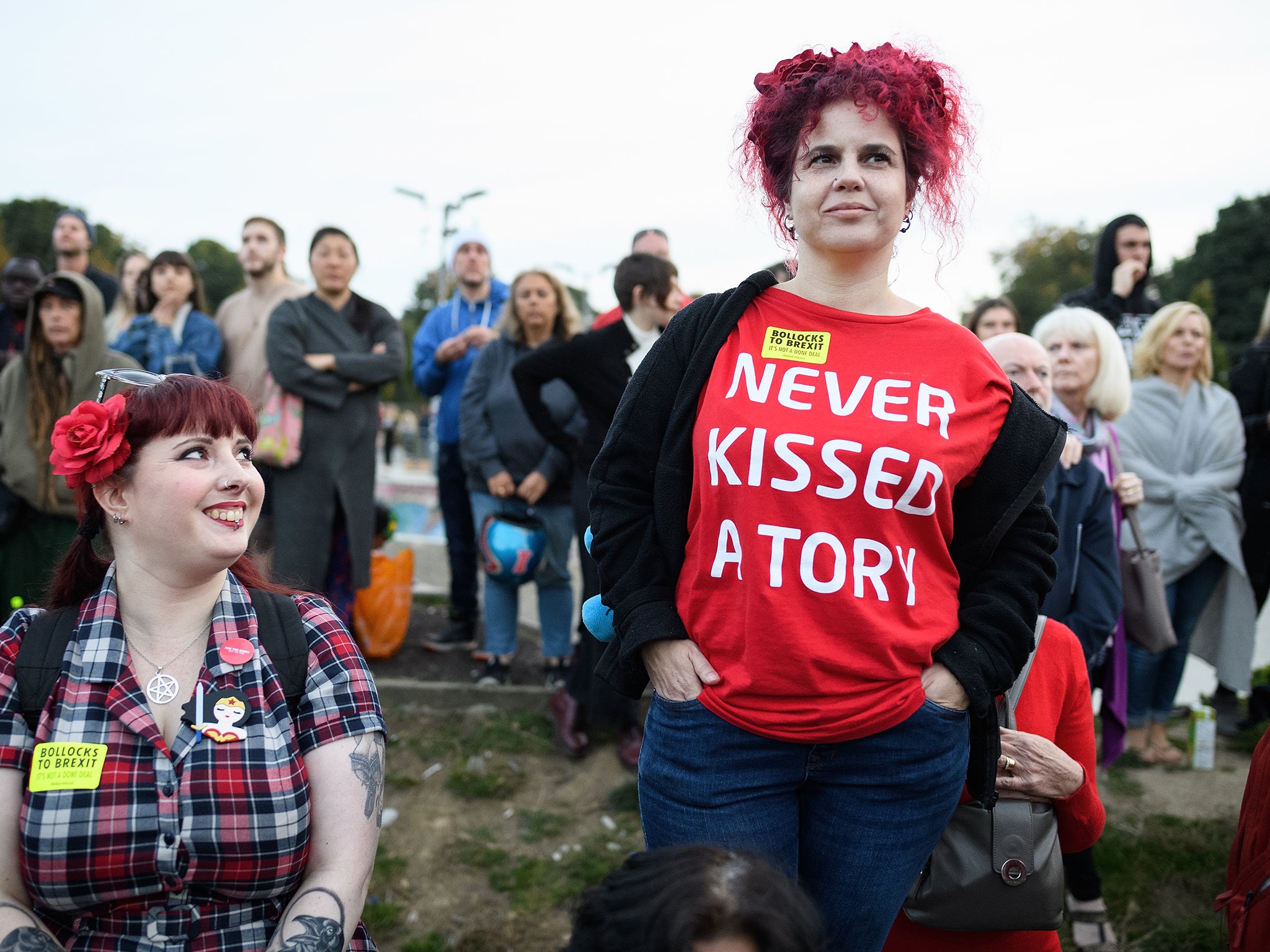Politics is being taken over by children with a pipe dream of returning to the socialism I know doesn't work
Those born after Thatcherism have never known what life was like under monopolistic inefficient state utilities and public transport services, with national debt hitting bankruptcy levels


The world seems to be going through one of its periodic infatuations with youthful political leadership. What’s worse – terrifying in fact – is the way that a new generation of younger voters with an exaggerated sense of entitlement are perfectly happy to believe in politicians promising them the earth.
Admittedly there are quite a few older politicians who are cynically offering idiotic, simplistic, unworkable solutions, such as Jeremy Corbyn and Donald Trump, but the current cult of youth is quite unprecedented. Not since the days when some accident could throw up the likes of King Tutankhamen (aged nine on assuming absolute power over Egypt) or Ethelred the Unready, English king at age 12, has the world we seen such a spectacle.
I worry because they never lived through the worst of their various countries experience of socialist planning. They are all charismatic, clever and well-read, sophisticated people. Yet, as Tony Benn liked to say no-one was ever truly radicalised just by reading a book – it is experience that counts, and the new generation certainly lack that.
So in Europe we have Sebastian Kurz just elected Austrian Chancellor (31), the newish Irish Taoiseach Leo Varadkar (38), and, most spectacular of all, Emmanuel Macron in France (39).
Over in New Zealand too, a young country usually content with older premiers, there is a fresh face with a bold voice: Labour’s Jacinda Ardern, at 37 years old her nation’s youngest premier, and congratulations to her on finally forming a government, more than a month after the general election.
She has called capitalism a "blatant failure", and pledged that her Government will increase the minimum wage, write child poverty reduction targets into law, and build thousands of affordable homes. The usual stuff, in other words. I find it telling that she has formed a coalition with the populist anti-migration New Zealand First Party (shades of Trump, bigly, there).
What seems to be happening around the world, New Zealand included, is that a new generation of voters – and indeed leaders – who have never experienced the bad old days of state socialism are becoming seduced by its easy-sounding answers to their problems.
Those born after the era of Thatcherism or Rogernomics (its New Zealand counterpart, named after the reformist Roger Douglas under the radical Prime Minister David Lange) have never known what life was like under monopolistic inefficient state utilities and public transport services, with national debt hitting bankruptcy levels, inflation well into double figures and when the unions ran everything.
This was, for Britain, an age when the Chancellor of the Exchequer could only cut income tax if the unions agreed to restrain wages; where the price of butter and bread was set by government, where the law stated how much company dividends could go up by, where billions were spent subsidising busted companies, and where you’d wait six months to get a phone (land line) put in by the Post Office. So of course those who’ve never lived through that grubby, tatty, run-down time will be prey to the false promise of socialism or its populist variants. they think that is a better tomorrow. For those of us who lived through that better tomorrow in real time the day before yesterday, so to speak, it is an appalling proposition.
They were miserable years of decline, absolute and relative. Britain, one of the nations most blighted by state socialism was unrecognisable from the funkadelic place we know today. Yes, houses were cheap and there were bargains to be had, but only because salaries were depressed, unemployment high, confidence weak and crime rife in what were to be – thanks to capitalism – famously gentrified districts on London. The easiest way to get house values down is to wreck an economy.
Put at its simplest, we’ve tried all these solutions before and they failed. Rent controls mean fewer properties to rent (because it is less lucrative to do so) and those that do get let are in worse condition because landlords have no incentive to invest in the stock.
The private rental sector in Britain had virtually disappeared by 1980. It could happen again if inflation erodes capped rents as it did in those years. Yet building social housing doesn’t work either, because what people actually want is not to rent a roof over their heads but to own that roof (and make a handsome profit doing so), and council housing doesn’t give them that. And reducing inequality of outcomes means taking from those who invest and create wealth and jobs – individuals and companies – and giving to those who do not; that may be a good thing to do in some sense, because inequality is “a bad thing”, or "unfair", but in the longer run it leads to a more equal society only because everyone becomes poorer – levelling down.
Equality of opportunity – the opportunity to become financially independent – and wealth creation are deeply unfashionable things to talk about in Britain today.
Increasing the minimum wage – in any nation – will tend to reduce job opportunities in lower wage sectors such as catering and hospitality because the businesses in those sectors will be less profitable and enjoy less investment; in other sectors, say manufacturing or some services, labour will be replaced by capital, humans displaced by machines.
An example: push the wages up for those gangs with buckets running their hand car washes and they will have to put their prices up, and that will mean a return to those big automatic car wash machines instead: Same with the automatic tellers at supermarkets that have been replacing cashiers. Those things have been happening already – but do we want to accelerate the pressure on lower paid jobs by eliminating them? How does eliminating lower paid work reduce inequality when people then lose their, admittedly, meagre living and end up on benefits?
In the UK, by the way, we in fact have the worst combination of all on the horizon: Hard Brexit plus Corbynism. You might call it “Socialism in One Country”. That combo will test the resilience of the British economy and the British spirit to destruction.
Meanwhile, the Conservative Government is in a state of intellectual crisis, swerving from defence of economic liberalism to proposing caps and controls and subsidies across the board. Spooked by the success of the socialist Jeremy Corbyn in the recent general election, and the sudden mobilisation of the youth vote, Theresa May is starting to run an administration that looks like Corbynism by proxy.
An exaggeration? Let’s see. The Budget next month will see a grab for older citizens’ wealth and savings not seen since the 1970s, and a blatant bribefest of subsidies to the young to buy houses and dissolve their student debts. Buying votes with the sweet, sweet nectar of the money tree: Politics at its worst. I’m only sorry I’m still young enough to have to live through another socialist experiment.



Join our commenting forum
Join thought-provoking conversations, follow other Independent readers and see their replies